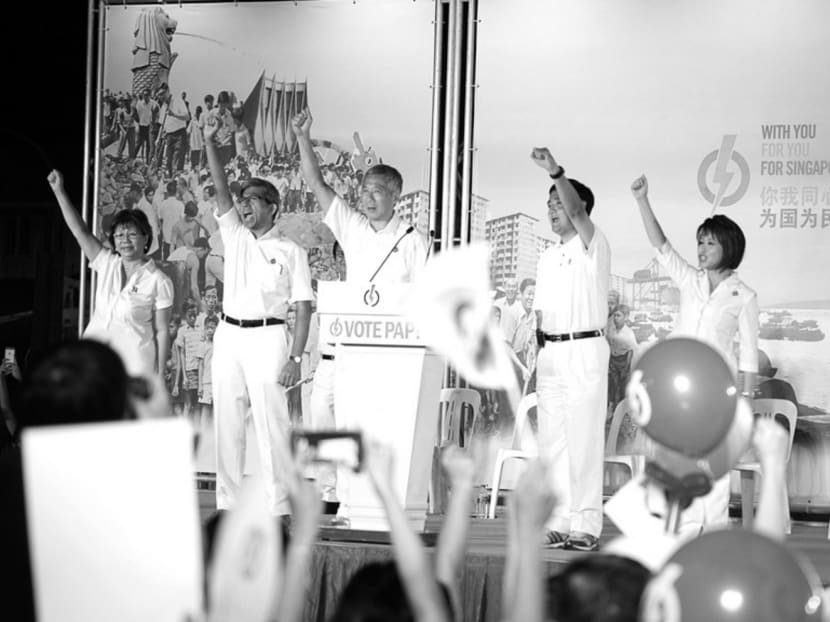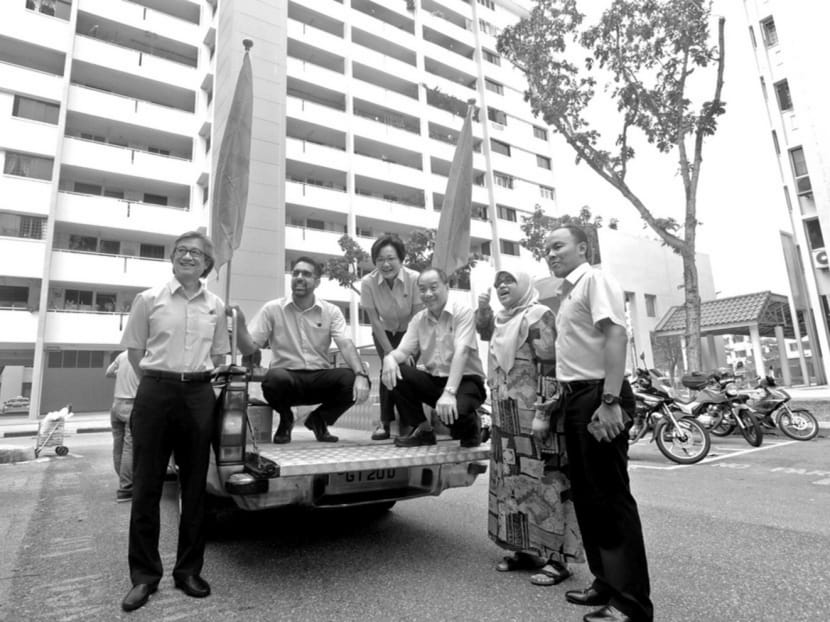What next for the PAP and Opposition?
SINGAPORE — Singaporeans have endorsed the People’s Action Party (PAP) to lead the country with a renewed, stronger five-year mandate. The ruling party’s impressive box-score entry for General Election (GE) 2015 reads 83 of 89 parliamentary seats and 69.9 per cent of the popular vote, the second-highest tally in the last eight elections.


SINGAPORE — Singaporeans have endorsed the People’s Action Party (PAP) to lead the country with a renewed, stronger five-year mandate. The ruling party’s impressive box-score entry for General Election (GE) 2015 reads 83 of 89 parliamentary seats and 69.9 per cent of the popular vote, the second-highest tally in the last eight elections.
With an almost 10 percentage point swing back to the PAP, the Opposition is no doubt feeling more than a little browbeaten. But the main Opposition Workers’ Party (WP) did retain six of its seven seats, a signal that voters still value their presence in Parliament.
Some observers believe the result of GE2015 is good for Singapore, ensuring that the PAP and WP will continue to work hard for the electorate for different reasons: The PAP to maintain its mandate, and the WP to chip away at the ruling party’s dominance. Yet, others argue that the unexpectedly high vote share given to the PAP is a step back in the democratic process and could curb the growth of an emerging Opposition.
It is clear that a great deal of work lies ahead on both sides of the political divide — to reform, refresh or rejuvenate — as they seek to represent Singaporeans in the next few years.
THE PAP’S PRICE OF VICTORY
The PAP has secured the political capital to manoeuvre and prepare for the much-anticipated transition to a fourth-generation leadership. Several new ministers from the 2011 batch have earned their stripes in testing appointments and some of the new faces elected last week will enter the ministerial crucible soon enough.
The highly anticipated Cabinet reshuffle will provide an indication of the team that will lead Singapore forward, and it would be useful to watch who among the fourth-generation leaders are entrusted with heavyweight portfolios. Another indicator of leadership within party ranks would probably come next year as new members are elected and co-opted into the PAP’s Central Executive Committee.
Those tapped by the Prime Minister to helm a ministry or even two are certainly aware that the myriad of outstanding pre-election issues — from domestic concerns such as public transport woes, job security, infrastructure development and immigration to economic and geopolitical uncertainties — have not disappeared. Segments of the population may be willing to forgo a stronger Opposition presence in Parliament, but all Singaporeans certainly expect the challenges to be satisfactorily addressed in the months ahead.
PAP leaders have said they will not rest on the laurels of GE2015. The polity is certainly cognisant that the 9.76 percentage-point swing in popular vote cannot be attributed solely to an endorsement of its policies and performances since the last election in 2011.
Some voters were genuinely concerned about the possibility of a freak election where the PAP would not form the Government — even though the possibility was as remote as snowfall in Singapore — with the unprecedented contest of all 89 parliamentary seats. Furthermore, the celebratory vibes of SG50 and the deference due to the late Mr Lee Kuan Yew were also significant factors.
The PAP will need to ensure they fix the problems with greater transparency in decision-making, increased consultation with the population and humility among its members to sustain the ostensibly high levels of support. Indeed, a big win comes with even bigger expectations from the electorate to deliver results. The cost of inaction will otherwise be borne by the next generation of leaders and the price will be paid at the next election.
THE OPPOSITION’S ROAD TO CONSOLIDATION
GE2015 was not a fruitful expedition for the conglomerate of Opposition groups, which witnessed an attenuation of votes despite contesting every parliamentary seat. Hard-core Opposition supporters were unflinching but they proved inadequate in number.
Several factors prompted the broad swathe of swing voters to choose the PAP. Some could be satisfied with how the Government solved policy missteps and sought to answer the Prime Minister’s clarion call for a strong mandate to assemble a new team to chart Singapore’s future. Some could also be affected by the town council management issue that cast aspersions on the integrity and ability of incumbent Opposition Members of Parliament (MPs).
But the past five years also caused voters to reflect on whether an election was about selecting quality candidates or the only means to signal displeasure with the ruling party. As the Opposition made inroads in GE2011, some began to question if the Opposition’s purpose as an alternative should go beyond making requests for information and asking questions in Parliament.
Although the Opposition, especially the WP, fielded some credible candidates who are on a par with the PAP’s slate, it was not enough to sway the voters.
Translating crowds and Internet traffic into votes also proved elusive. The clamour of the election campaigns over nine days proved to be false dawns. Some attracted crowds at rallies based on rhetoric but not substance. The use of social media also did not reap as much returns for the Opposition as it did in 2011 because Internet users are more sophisticated, able to differentiate between hype and those who could address core issues.
The challenge ahead for the Opposition is to ensure they present genuine competition to the PAP at the next ballot box, even though GE2015 results indicate an electorate that does not have the stomach for more Opposition MPs. What then is the future of the various parties?
While larger parties such as the WP are likely to survive by attracting new members and avoiding a mass exodus, the smaller and less popular parties have tough choices of merging into larger parties or risk disintegrating into insignificant cabals.
Yet these challenges are not insurmountable. The next phase is conducive for separating those with conviction from the opportunist “fly-by-night” free-riders. The determined will continue to work the ground while those who seek easy gains will resurface less frequently than the Olympic Games and only when personal rewards are ripe.
It is also a time for the parties to ponder their place in the hearts of voters and how to engage the electorate on the need for a stronger Opposition.
There will be some who are disappointed that the Opposition did not make greater inroads, and others elated with the PAP’s electoral bonanza. But who the citizens supported at the ballot box is also irrelevant as GE2015 enters the annals of history.
What matters now is how Singaporeans band together regardless of political leaning and support the country’s progress as another chapter begins.
ABOUT THE AUTHOR:
Dr Samuel Chan, a Singaporean, is an adjunct lecturer with the University of New South Wales at the Australian Defence Force Academy.






